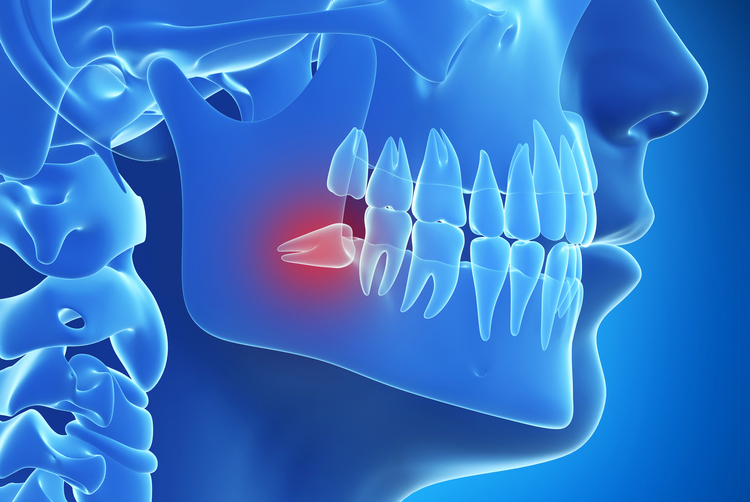ORAL SURGERY

ORAL SURGERY:
An impacted tooth is one that fails to erupt into the dental arch within the specific time. Because impacted teeth do not erupt, they are retained throughout the individual's lifetime unless extracted or exposed surgically. Teeth may become impacted because of adjacent teeth, dense overlying bone, excessive soft tissue or a genetic abnormality. Most often, the cause of impaction is inadequate arch length and space in which to erupt. That is the total length of the alveolar arch is smaller than the tooth arch (the combined mesiodistal width of each tooth). Thethird molars are frequently impacted because they are the last teeth to erupt in the oral cavity. Mandibular third molars are more commonly impacted than their maxillary counterparts. As a general rule, all impacted teeth must be removed unless otherwise contraindicated
Complications
Erupted teeth that are adjacent to impacted teeth are predisposed to periodontal disease. Since the most difficult tooth surface to be cleaned is the distal surface of the last tooth, in the presence of an impacted tooth there is always gingival inflammation around the second molar that is invariably present. Even this minor amount of inflammation can provide bacteria access to a larger portion of the root surface that results in early formation of periodontitis compromising the tooth. Even in situations in which no obvious communication exists between the mouth and the impacted third molar there may be enough communication to initiate dental caries (tooth decay)
Symptoms
Most commonly the individual complains of food getting lodged beneath the gums and a soreness that is usually confused with throat infections. In slightly milder forms a swelling is visible and mouth opening becomes difficult in severe cases. Pain is invariably present.
Management
All impacted teeth, unless and otherwise contraindicated, are considered for surgical removal.
